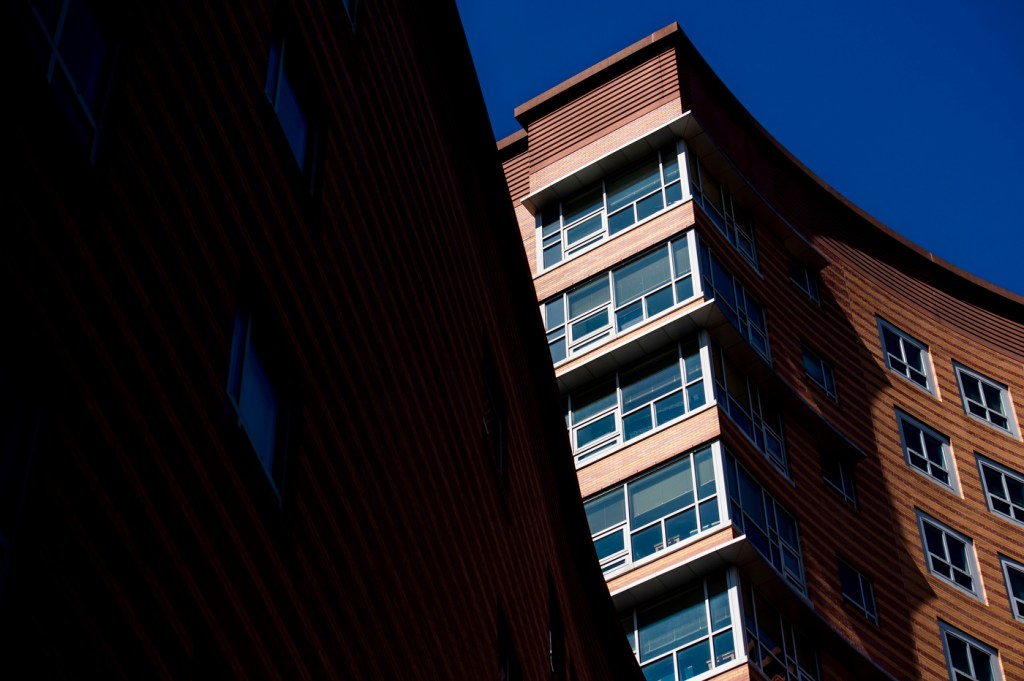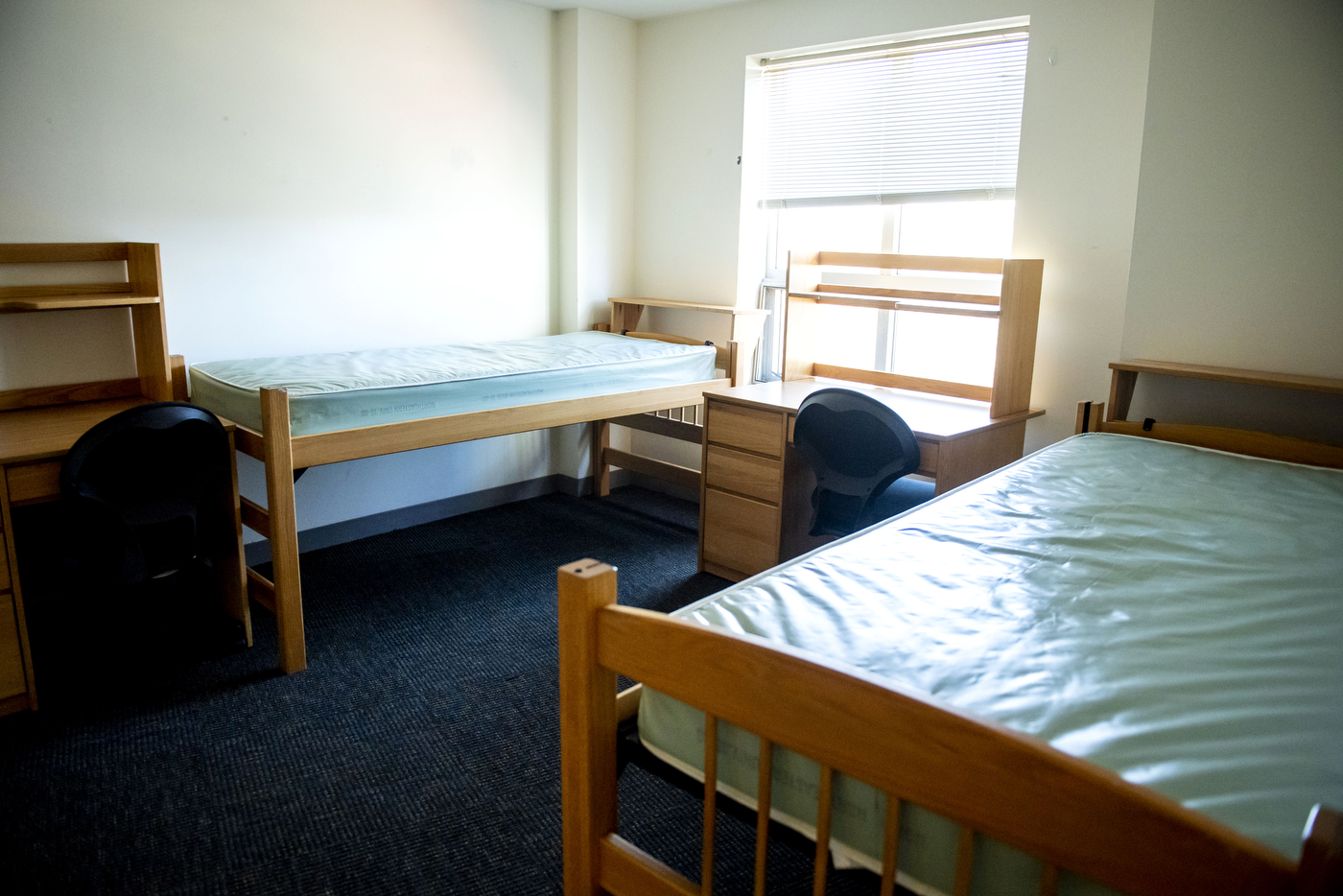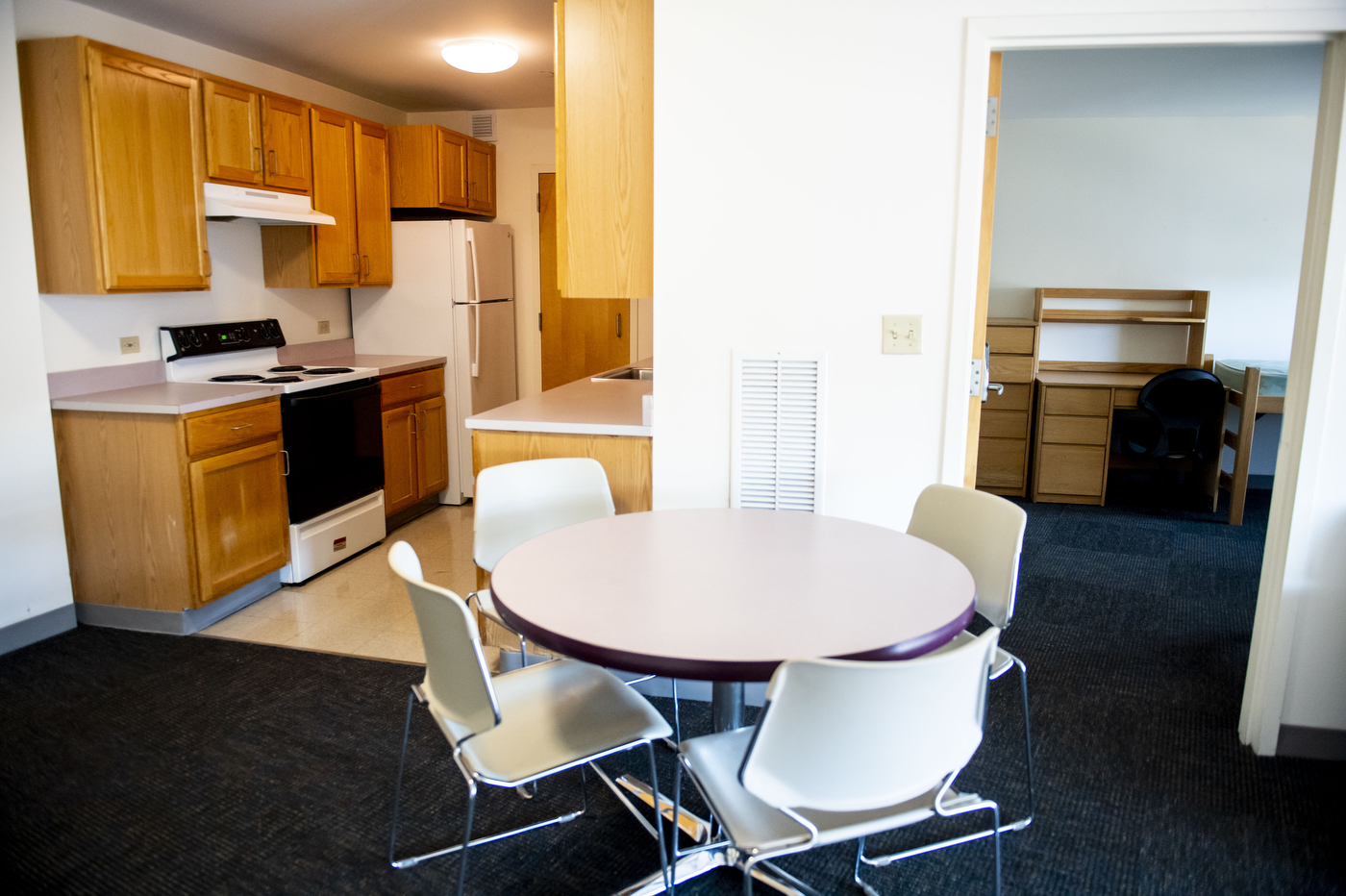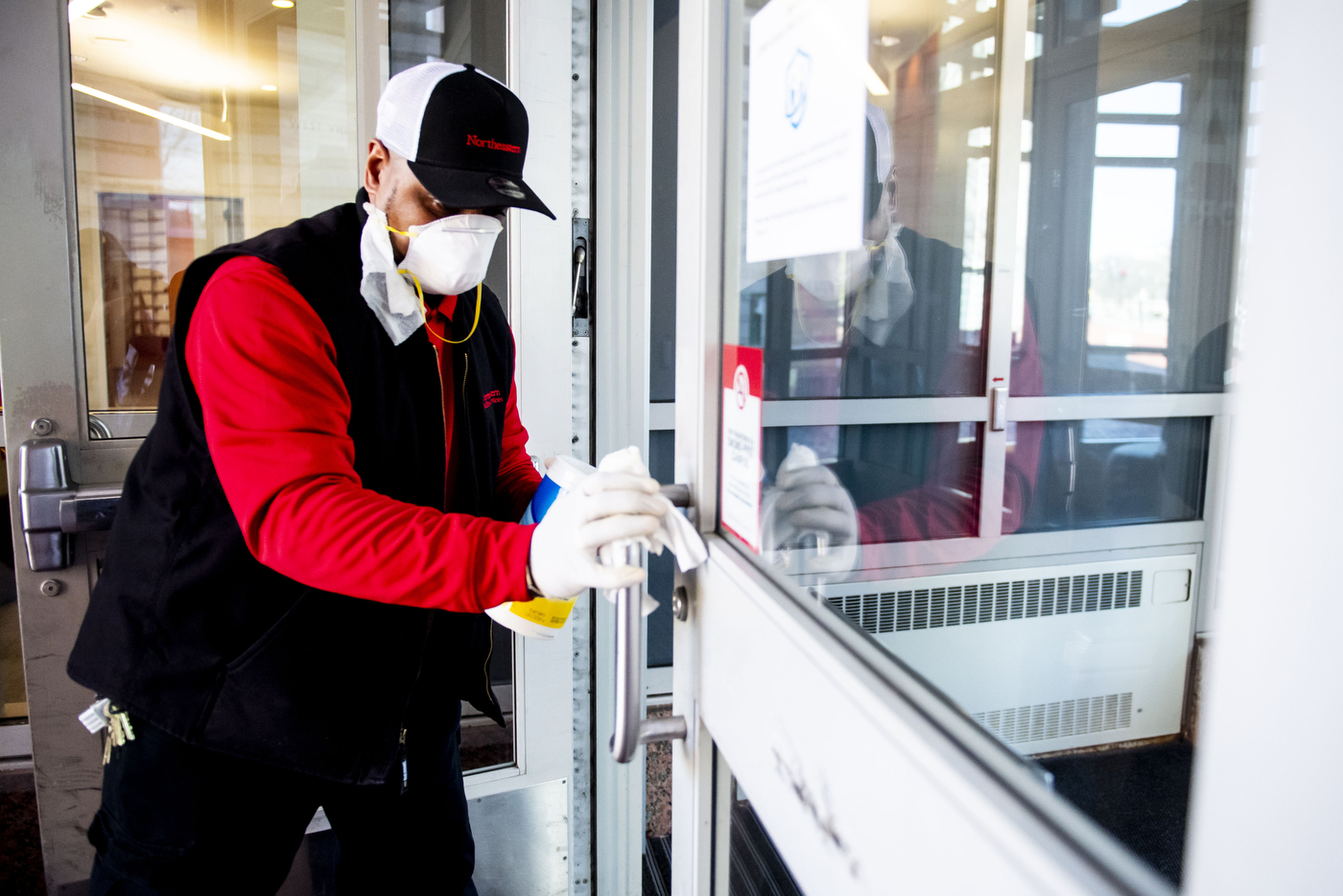Northeastern opens Boston residence hall to first responders on front lines of the COVID-19 pandemic

To address the increased need for safe places to stay for first responders on the front lines of the COVID-19 pandemic, Northeastern is opening a residence hall on its Boston campus to police and emergency medical service providers, at no cost.
The rooms—which, like all Northeastern dormitories, were vacated in March in accordance with guidance from public health agencies—will provide temporary, single-person housing that will afford first responders safe separation as they continue to provide essential services to the city.
“We’re entering the most crucial point in the outbreak and the beginning of a surge in cases that will be very difficult for our city,” Boston’s mayor, Martin J. Walsh, said Tuesday. “That’s why we are doing everything we can to be prepared, and increasing our medical and care capacity for vulnerable populations and hospitals. Today, we’re ramping up resources for our first responders and frontline workers to make sure they have the support they need as they care for our city.”
Northeastern will provide 135 rooms with beds, private bathrooms, and kitchenettes in West Village for first responders who live with someone who might be at higher risk for severe illness from COVID-19, such as older adults and people who have serious underlying medical conditions.
“In times of crisis, we must join together as one community and offer each other support and assistance,” said Joseph E. Aoun, president of Northeastern University. “We are honored to provide safe space for first responders, and we stand ready to offer additional help to the state and the city as needed. I applaud Mayor Walsh for his leadership through this difficult time.”


“It is an important thing. We’re very grateful to Northeastern for their generous offer to house Boston Police officers during this public health crisis,” said Sergeant Detective John Boyle, a Boston Police Department spokesman. “Our officers bravely continue to work to protect the city, and having this option is great because they don’t have to worry about possibly exposing any family members that may have underlying health factors.”
Boston’s healthcare providers and emergency personnel are currently bracing to face a surge of COVID-19 cases, which is predicted to arrive in the next two weeks.

A Northeastern facilities team member sanitizes and cleans a West Village dormitory to prepare rooms for first responders. Photo by Ruby Wallau/Northeastern University
“They’re on the frontlines every day, and they’re afraid to go home to their families,” said Jack Malone, Northeastern’s associate vice president of facilities, who has been preparing the residence halls. “There’s been a dire need.”
As the city finalizes these arrangements, Northeastern’s facilities teams, under Malone’s direction, will finish identifying and safely storing any remaining student possessions in the residence halls, as well as cleaning and preparing the premises for their new use.
“It’s just the right thing to do,” said John Tobin, vice president of city and community affairs for the university. “Northeastern’s an integral part of the City of Boston, and we’re partners with the City of Boston. That means in good times, and that means in bad times.”
Further official university updates to faculty, staff, and students will be issued via email and posted on its dedicated COVID-19 website.
Ian Thomsen contributed to this report. For media inquiries, please contact media@northeastern.edu.





